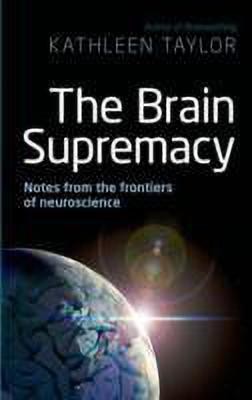The Brain Supremacy: Notes from the Frontiers of Neuroscience(English, Hardcover, Taylor Kathleen)
Quick Overview
Product Price Comparison
Advances in physics, chemistry and other natural sciences have given us extraordinary control over our world. But today the balance of power in the sciences is changing, as research on the brain and mind has produced important breakthroughs in our understanding of ourselves and of our environment. As a result, funding and researchers are pouring into the field of neuroscience. The Brain Supremacy is a lucid and rational guide to this exciting new world. Using recent examples from scientific research and from the popular media, it explores the science behind the hype, revealing how techniques like fMRI actually work and what claims about using them for mindreading really mean. Kathleen Taylor presents the implications of this amazingly powerful new research clearly and entertainingly. Science has already altered how we behave. Soon it will be able to change who we are. For the first time, we may be able to cure devastating diseases, take a pill to boost our own intelligence, and much more. Looking to this exhilarating but also troubling future, Taylor sets current neuroscience in its social and ethical context, as an increasingly important influence on how all of us live our lives. What will the new science mean for us, as individuals, consumers, parents, and citizens? Should we be excited, or alarmed, by the remarkable promises we read about in the media--promises of drugs that can boost our brain power, ever more subtle marketing techniques, even machines that can read minds? What is the neuroscience behind these claims, and how do scientists look inside living human brains to get their astonishing results? An illuminating account of both cutting-edge neuroscience and the future of this field, The Brain Supremacy offers an eye-opening look at the astonishing power of science to affect our lives. Silent Features Explains the latest increasingly influential advances in neuroscience Looks at the practical and ethical implications of new technologies, to allow readers to make their own informed judgements Explores how to distinguish the hype from the science Make sense of neuroscience by looking at its social and historical context, showing how it relates to our everyday lives Looks to the future and how advances in neuroscience may alter our behaviour About the Author Kathleen Taylor is a freelance writer as well as a visiting researcher at the University of Oxford. In 2002 she won two writing competitions run by the Times Higher Education Supplement, one for science writing and one for an essay in the humanities/social sciences. Her books include Brainwashing: The Science of Thought Control (longlisted for an Aventis Prize and translated into eight languages) and Cruelty: Human Evil and the Human Brain.


